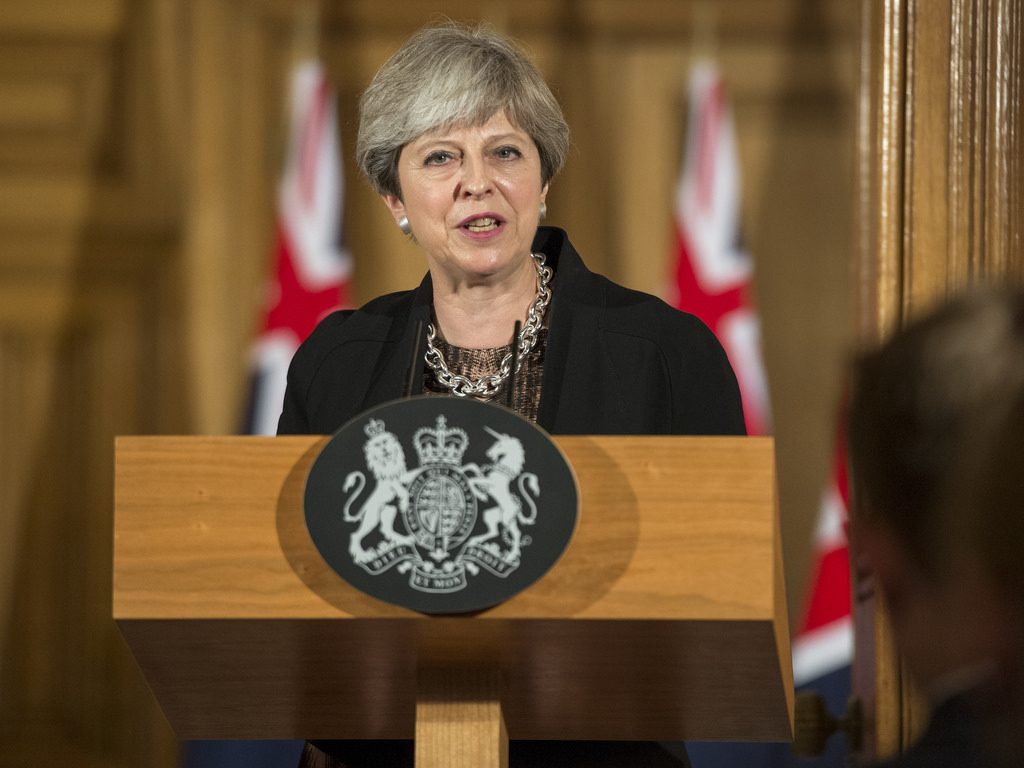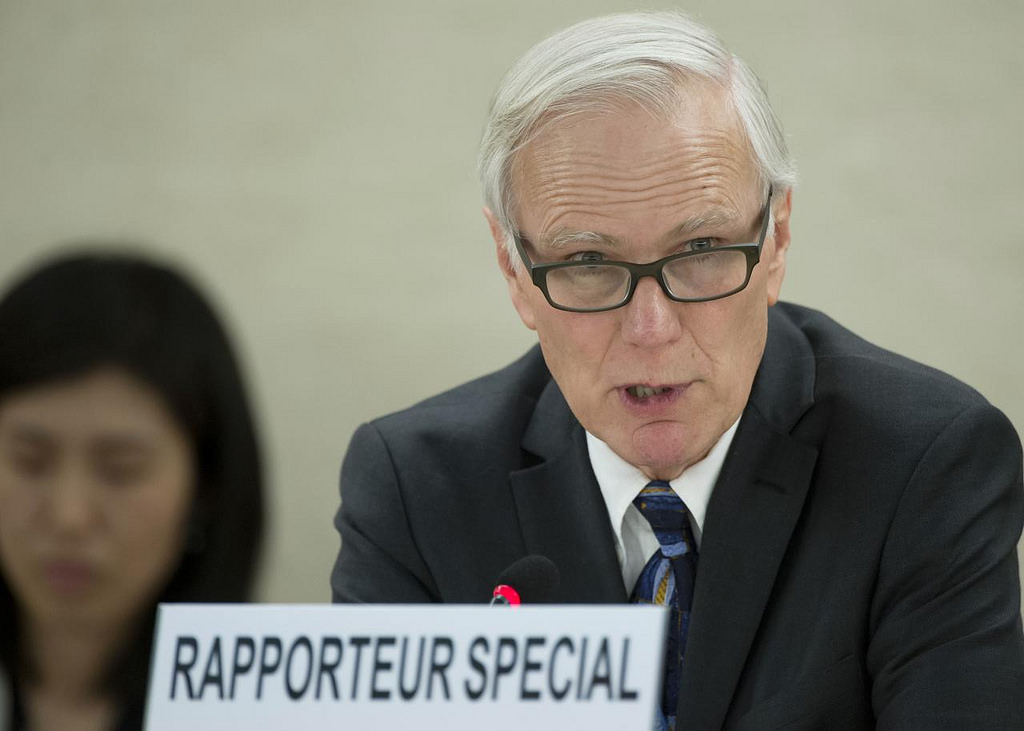Government welfare cuts have removed the “glue that has held British society” together and replaced it with “a harsh and uncaring ethos”, the United Nations’ poverty and human rights expert has found.
Philip Alston, the UN’s Special Rapporteur on extreme poverty and human rights, has today (May 22) issued his scathing, final report on the state of poverty in the UK following a two-week fact finding mission in November last year.
In his report he accuses the government of pursuing a “single-minded focus on getting people into employment”, a mentality which has “brought the most misery and wrought the most harm to the fabric of British society”.
“A booming economy, high employment and a budget surplus have not reversed austerity, a policy pursued more as an ideological than an economic agenda,” he wrote.
But, as reported by the Guardian, work and pensions secretary Amber Rudd is planning to lodge a formal complaint with UN accusing Mr Alston of being politically biased and not doing enough research.
A spokeswoman for the Department of Work And Pensions (DWP) called Mr Alston’s report “barely believable” and “based on a tiny period of time spent here”. She highlighted that government spends £95 billion a year on welfare and that unemployments is at its lowest since 1974.
The Government Is ‘Failing To Address’ Key Concerns

Image Credit: Flickr.
He criticised the government’s response to his preliminary findings, shared at a press conference in November, as “falling back on two sets of talking points which fail to address the key concerns”.
Impressive employment statistics are a cause for celebration, but they are no substitute for addressing the plight of the one fifth of the population that continues to live in poverty or the large numbers experiencing destitution.
Philip Alston, the UN’s Special Rapporteur on extreme poverty and human rights.
The first is the government’s repetition that unemployment is at its lowest rate in 40 years, that 3.3million more people are in work since 2010, that youth unemployment has dropped and that 79 per cent of jobs created are full-time.
“Impressive employment statistics are a cause for celebration, but they are no substitute for addressing the plight of the one fifth of the population that continues to live in poverty or the large numbers experiencing destitution,” he responded.
He highlighted that the growth in the workforce masks the fact that 2010 was a low-point due to the global recession and that “even full-time employment is no guarantee against in-work poverty, which is a major and growing problem in the United Kingdom”.
The second set of talking points relate to the government’s repeated claims that there are 1 million fewer people in absolute poverty today, 300,000 fewer children in absolute poverty and 637,000 fewer children living in workless households, a success it attributes to Universal Credit.
“Widely accepted independent measures find poverty is rising,” he responded. “It is true that so-called “absolute” poverty has fallen, but this is a selective, widely criticized and mostly unhelpful indicator, and the government has failed to adopt an official poverty measure.
He added: “Living in a working household does not bring freedom from poverty, with nearly 60 per cent of those in poverty in a family where someone works.”
What Is New In This Final Report?
As RightsInfo reported in November, Mr Alston’s finding highlighted a decline in social services as a result of cuts to local authority budgets; the disproportionate impact of cuts on women, ethnic minorities and persons with disabilities; and projections that 40 per cent of children will be living in poverty by 2021.
His final report also highlights that “the legal aid system has been decimated, thus shutting out large numbers of low-income persons from the once proud justice system”.
According to his study, the number of civil legal aid cases declined by a staggering 82 per cent between 2010-11 and 2017-18.
“Many poor people are unable to effectively claim and enforce their rights, have lost access to critical support, and some have even reportedly lost custody of their children,” he wrote.
He also criticised the DWPs’ move to a “digital by default” welfare system as “designing a digital and sanitised version of the nineteenth century workhouse, made infamous by Charles Dickens”.
This refers to the fact the claimants of controversial social welfare payment Universal Credit – introduced in 2013 with the intention of streamlining the welfare system – primarily interact with authorities through online portals.
“The British welfare state is gradually disappearing behind a webpage and an algorithm,” he wrote. “Overall roll-out of broadband Internet in the United Kingdom may be high, but many poorer and more vulnerable households are effectively offline.
“According to the Department’s own 2018 survey, only 54 per cent of all claimants were able to apply online independently, without assistance.”
What Are The Main Recommendations?
- Introduce a single, multidimensional measure of poverty
- Systematically measure food security
- Request the National Audit Office to assess the cumulative social impact of tax and spending decisions since 2010, especially on vulnerable groups, with a view to identifying what would be required to restore an effective social safety net
- Reverse particularly regressive measures such as the benefit freeze, the two-child limit, the benefit cap and the reduction of Housing Benefit, including for under-occupied social rented housing
- Restore local government funding needed to provide critical social protection and tackle poverty at a community level, and take varying needs of communities and differing tax bases into account in the ongoing Fair Funding Review
- Initiate an independent review of the efficacy of changes to welfare conditionality and sanctions introduced since 2012 by the DWP
- Train Department staff to use more constructive and less punitive approaches to encouraging compliance
- Eliminate the five-week delay in receiving initial Universal Credit benefits
- Ensure that the benefit truly works for individuals, including by facilitating alternative payment arrangements and reviewing the monthly assessment practices
- Review and remedy the systematic disadvantage inflicted by current policies on women, as well as on children, persons with disabilities, older persons and ethnic minorities
- Re-evaluate privatisation policies to ensure that the approach adopted achieves the best outcomes for citizens rather than for the corporate sector
- Transport, especially in rural areas, should be considered an essential service and the Government should ensure that all areas are adequately and affordably served.
What Is the Government’s Response?
A DWP spokeswoman said: “The UN’s own data shows the UK is one of the happiest places in the world to live, and other countries have come here to find out more about how we support people to improve their lives.
“Therefore this is a barely believable documentation of Britain, based on a tiny period of time spent here. It paints a completely inaccurate picture of our approach to tackling poverty.
“We take tackling poverty extremely seriously which is why we spend £95 billion a year on welfare and maintain a state pension system that supports people into retirement.
“All the evidence shows that full-time work is the best way to boost your income and quality of life, which is why our welfare reforms are focused on supporting people into employment and we introduced the National Living Wage, so people earn more in work.”
She added that the UK’s unemployment rate is at its lowest level since 1974 and that wages continue to outstrip inflation.







